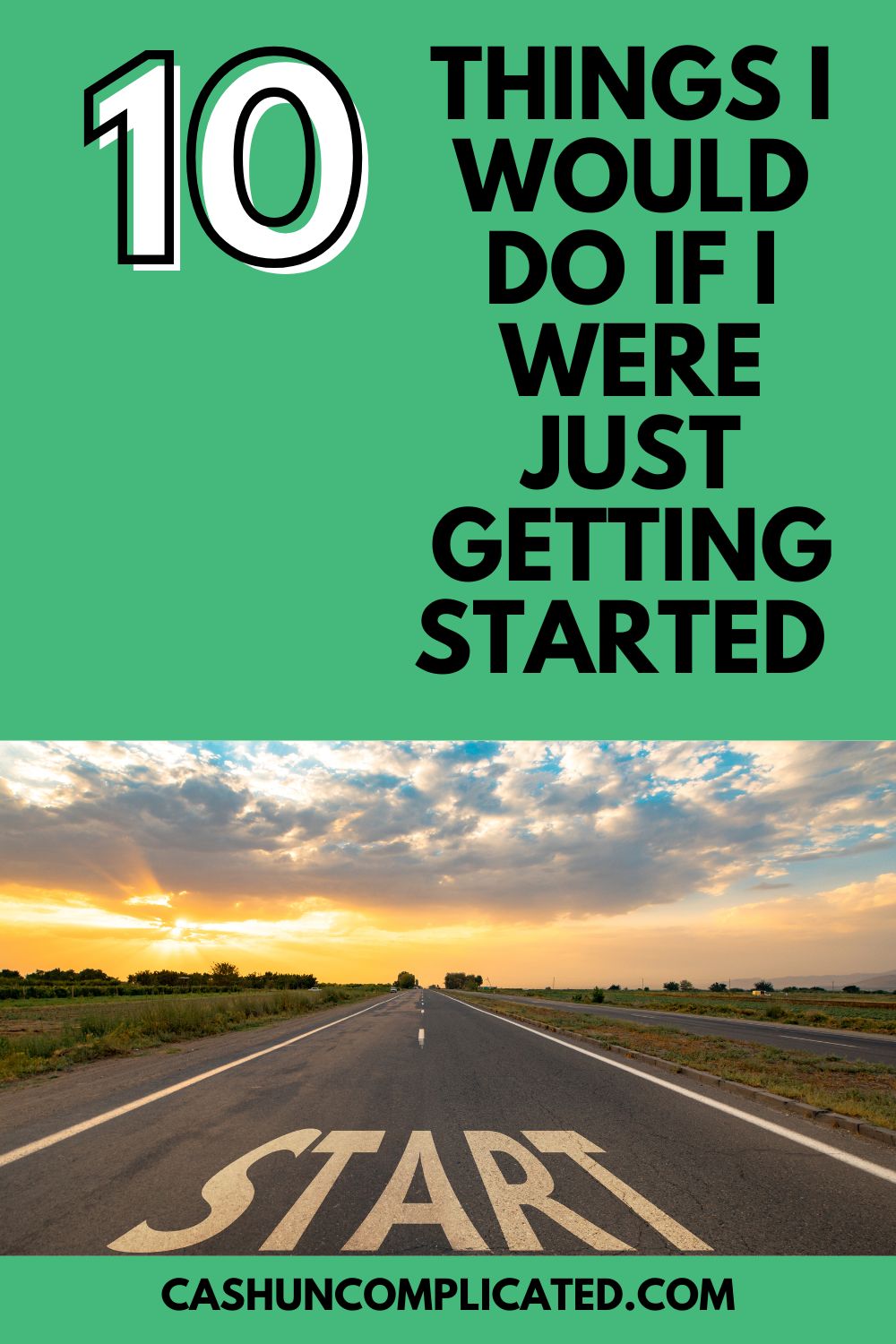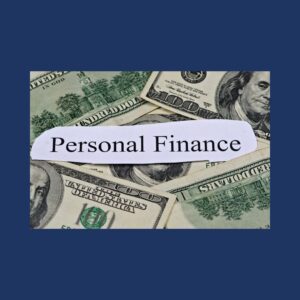Now and then it’s fun to go back and reminisce. I did this the other day when I saw a couple young people making a really bad financial decision because it kind of reminded me of myself when I was just getting started. So I decided to write this post of what I would do if I was just getting started.
What Do You Mean By “Just Getting Started”?
When I write just getting started, I’m referring to early to mid-twenties. This is a time when most young adults are doing their own thing and getting off their parents payroll (this happens earlier for others, later for others). For those who went to college, it’s around the time they are finishing up and looking at entering the workforce for their first “real job.”
How Can Smart Decisions in Your Early Years Catapult Your Future?
This is the best time to get a jumpstart on your life and set yourself up for the years to come. It’s an opportunity to start compounding knowledge, experience, and money. Think of this time as the springboard to your future.
These are 10 things I would do if I was just getting started. This list is in no particular order and most things on the list could be done at the same time.
Number 1: Establish an Emergency Fund of Three to Six Months
I was paycheck to paycheck from my early twenties all the way until early to mid-thirties. I had very little savings–not a great spot to be in. If I were to give my younger self advice, one of the first things I would do is establish an emergency fund.
An emergency fund puts you out of the paycheck to paycheck cycle and gives some cushion for when life happens. A job loss, unexpected emergency, car breaking, having to come up with a security deposit for a new apartment, among many other things.
An emergency fund also gives peace of mind knowing there are a few months of runway in case of the unexpected.
Depending on a young person’s responsibilities, somewhere between three to six months is about right. A single person living on their own with minimal responsibilities can get away with fewer months while someone with a family or providing financial support to someone else will want to have more months saved up.
Job security also matters. An entrepreneur with an inconsistent income would be wise to have more saved than someone with a job with minimal turnover.
Number 2: Invest In a Roth IRA
A Roth IRA provides tax free gains, meaning that when you’re ready to start withdrawing, you won’t be paying taxes. This is a huge advantage because you will have years of compounding that grows tax free for you to do as you want when you pull it out.
If I were just getting started, I would max out my Roth IRA every single year until I was no longer eligible. Someone doing this from their early 20’s through retirement age is at a huge advantage later in life.
Number 3: Bring My Lunch Every Day (Or Almost Every Day)
I watched a group of young people last week order takeout for lunch. Then they did it the next day and the day after that. There is nothing wrong with eating out now and then but getting takeout every day is not a good use of funds, especially for someone just starting out struggling to make ends meet every month.
People form habits and get into routines. Ordering takeout is one of those routines and habits that people get into without even paying attention to it. The problem with this is there really is no added enjoyment to ordering out, it’s just part of the day.
This habit is easily replaceable by simply bringing your lunch every day. Once you get into the routine, it’s easy to stick to and you won’t miss takeout on a daily basis. It also saves a lot of money, which is important for someone just starting out.
Related: Can Packing Your Lunch Make You a Millionaire?
Number 4: Only Go Out Once Per Week on Average
When I was younger, I would go out on average one to three nights per week, averaging two nights. Not only was I spending too much on food and drinks, but it was also an unhealthy lifestyle to stay out late drinking and eating not so healthy food.
If I were to go back in time and do it again, I would only have gone out once per week on average, twice if it were a special occasion. The first night was always fun but then you start to get diminishing returns and it’s just not as fun.
So I would never tell my younger self or a young person to never go out, but I would tell them to slow down on the amount of nights. Enjoy the night out and then find other things to do with friends.
Number 5: Buy the Cheapest, Reliable Car You Can Find
When you’re young, there’s no need to buy an expensive car. A vehicle is a depreciating asset and the money would be much better used to invest, travel, and gain experiences. For a young person making an average salary, a car eats into those funds to do the important things.
Just make sure the car is reliable and will get you from point A to point B. There are plenty of affordable cars that will do that for you, there isn’t a need to go big on a $30,000 or $40,000 vehicle. There’s plenty of time for that later.
Number 6: Become an Expert in a Skill
This is a mistake I see from a lot of young people, me included. Finish high school or college, enter the workforce and then stop learning. When in actuality, this is the perfect time to learn or enhance a new skill that will make you more valuable in the workforce and life in general.
Learn a valuable skill such as:
- Communication
- Negotiation
- Programming
- Coding
- Money management
Learning a skill like this will put you leaps and bounds ahead of your peers. For example, someone who works hard at becoming a better communicator will have so many doors open that never would have opened otherwise. Whether you’re starting a business or an employee with a company, communication is a skill always in demand.
By spending extra time in this area, a young person will be way ahead of their contemporaries. Same for other skills like negotiation, programming, money management, etc.
Number 7: Seek Wisdom and Mentors
When you’re young, you have a lot of energy but not a lot of knowledge or wisdom. That’s not to say young people aren’t smart, but there are certain things you can only acquire through experience and time. A great shortcut to acquiring wisdom is to seek it from mentors.
There are tons of people with wisdom who are more than willing to share it with young people. I would tell my younger self to go out and seek those people because their knowledge and mentorship is a tremendous asset.
Seeking wisdom can also lead to a job or career opportunity. If a mentor finds a young person who is smart, motivated, and eager to work, there’s a good chance they will either hire that person themselves or connect them with someone who would hire them. This isn’t the primary reason to find a mentor, but it’s definitely a secondary benefit.
Number 8: Learn Personal Finance
There are a lot of really smart people who don’t understand personal finance. It’s not taught in schools and many parents aren’t confident to teach it to their kids. As a result, you have a lot of financially illiterate people out there who want to do well with money, but don’t understand how.
Learning personal finance is one of the most important things I would learn if I were just getting started. Fortunately, I did learn personal finance, but it wasn’t until I was well past 30. I had years and years of missed financial opportunities because I wasn’t educated on the subject and didn’t take the time or initiative to get educated.
Taking the time to learn personal finance as early as possible will put anyone on the path to early financial freedom. Not to mention less financial stress on the journey towards it.
Number 9: Avoid Consumer Debt
If I had to do it over again, I would definitely avoid consumer debt. I racked up my consumer debt slowly. Every month I was spending more than I made so my credit card bill slowly creeped up to about $5,000 at its peak. In today’s dollars that’s between $8,000-$10,000.
That doesn’t sound like much, but if you’re spending more than you’re earning, that amount easily could have propelled to $10,000 plus with no end in sight.
Any amount of consumer debt is dangerous for those reasons. It kind of creeps up on you and before you know it, you are thousands in the hole with no end in sight and no plan to pay it off.
The best thing to do is stay out of consumer debt from the start. That way you’re never paying interest to the credit card companies and risking falling further behind without a viable way out. If you know that you’re someone who doesn’t do well with credit, just don’t get a credit card.
Number 10: Gain Experiences, Not Things
When I was a kid, I used to think it was better to have things over experiences. A thing was something tangible I could potentially have forever. A toy, baseball glove, poster of my favorite football player-or any other object that a little kid would value.
Of course I’ve long since realized that my 10 year-old self was wrong on that. Things are just stuff. They can make you momentarily happy and/or make life more convenient, but the experiences are the true richness of life.
A long weekend trip with your spouse, a family road trip, a day trip to the beach, a night out with friends, etc. These are the things we remember and add value to our lives.
Even with little money, you can still gain experiences. You might not be able to afford a two week stay in the French Riviera but a day spent hiking or going for a long bike ride at a local park costs nothing.
Conclusion
We all have things we’d go back on and do differently. In reality, nobody can go back, but we can pass on our wisdom to others.
For many of us, that’s our children or younger relatives. For others that might be mentoring or providing sage advice to a young person now and then.
And even though we can never go back in time, we can take our life lessons and apply them to our current situation so that we have a better present and future.
What would you tell your previous self? What lessons have been the most valuable for you?








